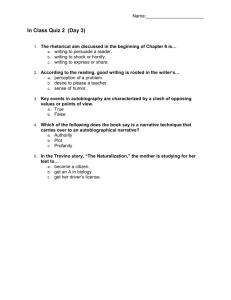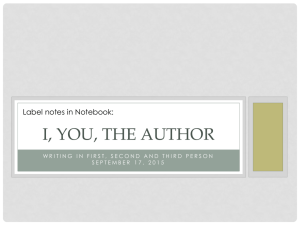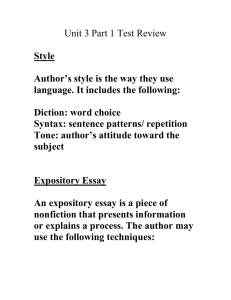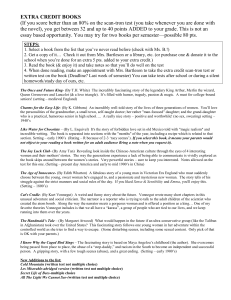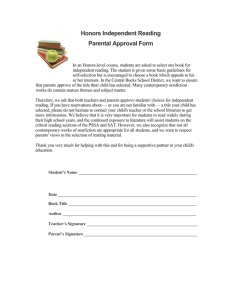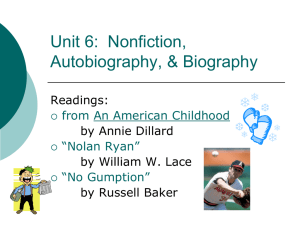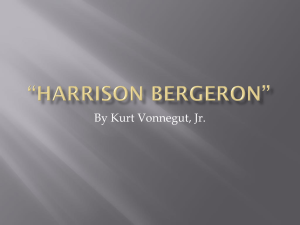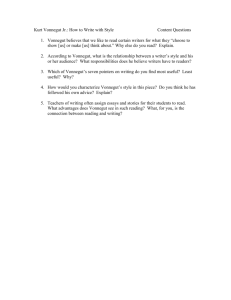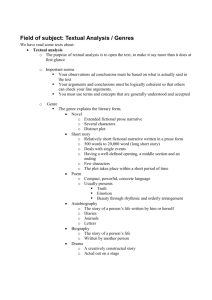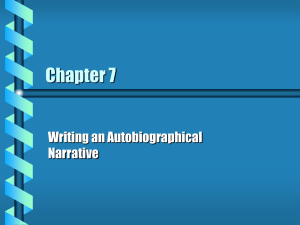Nonfiction Narratives - Worth County Schools
advertisement
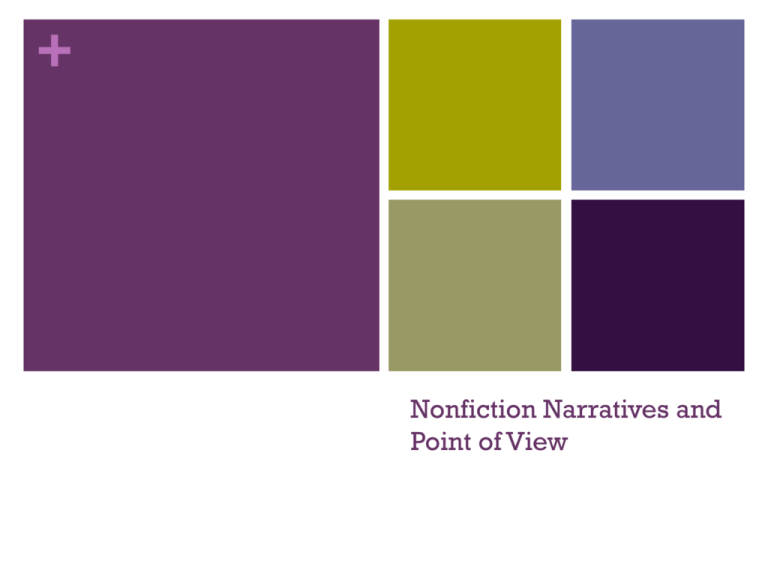
+ Nonfiction Narratives and Point of View + Biography The story of a person’s life written by another person Example: In these books, Vonnegut mastered his trademark black comic voice, making his audience laugh despite the horrors he described. He had already developed a cult following of college students, but he broke through to a mass audience with Slaughterhouse-Five and the excellent film version of the novel that soon followed. By the early 1970s,Vonnegut was one of the most famous living writers on earth. --From: “A Brief Biography of Kurt Vonnegut” by William Rodney Allen + Autobiography The story of a person’s life written by that person Personal narrative—autobiographical story where the writer focuses on one significant event from his/her life Example: I saw that the best thing I could do was get hold of a dictionary—to study, to learn some words. I was lucky enough to reason also that I should try to improve my penmanship. It was sad. I couldn’t even write in a straight line. It was both ideas together that moved me to request a dictionary along with some tablets and pencils from the Norfolk Prison Colony school. From The Autobiography of Malcolm X by Malcolm X + Memoir Tells the story of a person’s experiences in relation to a historical event can be autobiographical or biographical usually focuses on only one segment of the person’s life Example: I glance at my watch, and again I ‘m irritated by how late it is. Across the Hudson River, the Jersey City skyline is bright and sharp against the backdrop of dazzling, pure blue sky. The river is a deep gray, its wind-driven swells crisscrossed by the wakes of morning water taxis. I grow impatient when we are caught at yet another red light, but before long we are turning left across West Street to the carport entrance to One World Trade Center. Against All Odds (a Story of Survival on 9/11) by Lauren Manning + Historical Background Historical setting refers to the time and place in which a work is set. This may include important historical, social, or political events associated with the time period. The historical background may be different from the contemporary context, OR it may be the same. + Contemporary Context This refers to the condition existing at the time a text is being written. These conditions include, but are not limited to, social, political, economic, and/or cultural events. The contemporary context may be different from the time and place in which a narrative is set, OR it may be the same. + Point of View 1st person—The use of I, me, we and other first-person pronouns to relate the thoughts, experiences, and observations of a narrator in a work of fiction or nonfiction 2nd person—Use of the imperative moor and the pronouns you, your, and yours to address a reader or listener directly + 3rd Person Point of View—uses the pronouns he, she , they Objective—the facts of a narrative are reported by a seemingly neutral, impersonal observer or recorder Limited—a narrator reports the facts and interprets events from the perspective of a single character Omniscient—an all-knowing narrator not only reports but may also interpret events and relate the thoughts and feelings of any character
